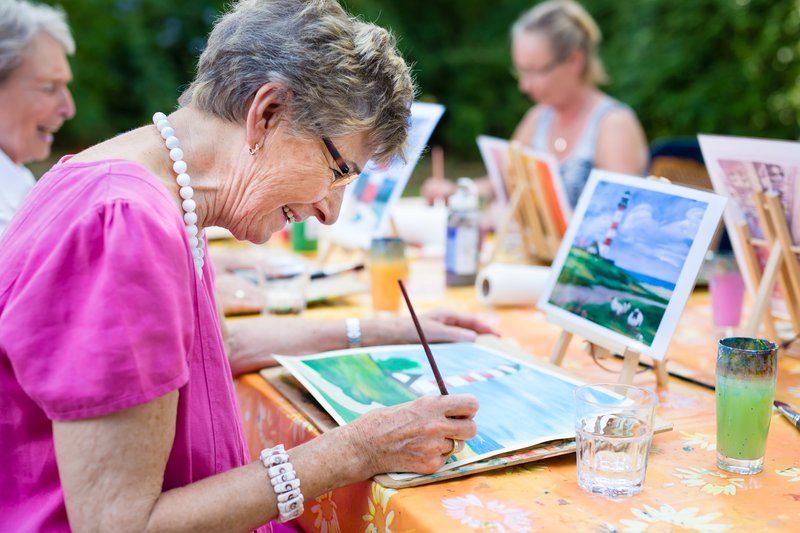
Engaging in memory-stimulating activities can improve cognitive function, mood, and overall quality of life for dementia patients. These activities encourage the brain to create and maintain connections, enhancing memory retention. Families and caregivers can help by facilitating regular participation in activities that bring joy and mental engagement.
Memory-stimulating activities range from simple tasks, like listening to music , to more interactive approaches, such as games and exercises. By incorporating these into daily routines, caregivers can create a positive environment that promotes mental and emotional well-being for dementia patients.
The Power of Music and Reminiscence for Dementia Patients
Music has a profound impact on memory , especially for dementia patients. Familiar songs can trigger memories and emotions, even in the advanced stages of dementia. This connection happens because music engages multiple brain areas, helping patients recall specific times and places associated with favorite songs.

Listening to music from their younger years or specific life events can evoke positive emotions. Caregivers can encourage patients to sing along or play instruments, which provides both cognitive stimulation and enjoyment. Creating personalized playlists can help patients feel more connected to their past, fostering a sense of familiarity and comfort.
For even more impact, caregivers can incorporate reminiscence therapy alongside music. Talking about life events while listening to songs allows patients to engage with verbal and emotional memory pathways.
Cognitive Games and Puzzles for Dementia Patients
Games and puzzles are excellent tools for stimulating memory and cognitive functions in dementia patients. Simple puzzles, memory games, and card-matching activities engage the brain in problem-solving, which helps to maintain mental agility. Caregivers can choose age-appropriate puzzles that align with the patient’s abilities, ensuring they’re challenging but not overwhelming.
Word searches, crossword puzzles, and matching games are particularly beneficial, as they target the brain’s language and visual memory areas. Regular engagement in these activities can enhance focus, short-term memory, and cognitive processing.
Group activities, like bingo or card games, offer social engagement alongside cognitive stimulation, allowing patients to benefit from shared interactions. Social connections foster mental well-being, which can positively affect memory.
Art and Craft Projects for Dementia Patients
Creative activities, such as painting, drawing, and crafting, provide mental stimulation while giving dementia patients a sense of accomplishment. Art projects enable individuals to express their emotions, even if language becomes challenging. Creating visual art can connect patients with memories, as specific colors, textures, or materials may evoke meaningful associations.
Engaging in crafts or hands-on projects activates the brain’s motor and cognitive pathways, promoting focus and mental resilience. Crafts that involve repetitive motions, like knitting or painting, are also calming and meditative, reducing stress and anxiety.
Caregivers can further personalize art projects by incorporating elements related to the patient’s past interests or professions. This personal touch enhances engagement, making the experience more enjoyable and meaningful.
Physical Activity and Movement
Physical activities, like walking, dancing, and gentle exercise, offer cognitive and physical benefits for dementia patients. Exercise increases blood flow to the brain, promoting the growth of new brain cells and enhancing memory function. Movement-based activities also help manage mood, reduce anxiety, and improve sleep quality.
Dancing is especially beneficial because it combines music, rhythm, and movement, engaging multiple brain areas simultaneously. Guided dance or simple exercise routines encourage patients to remember specific movements, improving memory and coordination.
Simple stretching, chair exercises, or outdoor walks can be as effective. Consistent, enjoyable physical activity contributes to a healthier brain and provides structure to daily routines.
Storytelling and Guided Conversations
Storytelling and guided conversations offer dementia patients a chance to reminisce, express themselves, and strengthen verbal memory. This can involve sharing stories from childhood, recalling favorite memories, or discussing photos from family albums. Encouraging patients to talk about these experiences engages long-term memory and fosters a sense of connection.

Structured conversations around specific topics help patients recall details, even if short-term memory is affected. Prompting with open-ended questions like “Tell me about your first job” can guide patients in remembering and sharing their stories. Storytelling strengthens bonds with caregivers and family, fostering a supportive and comforting environment.
Storytelling activities provide insight into a patient’s life experiences and values, helping caregivers better understand their needs and preferences.
Sensory Stimulation and Memory Recall
For dementia patients, sensory stimulation engages memory through touch, smell, and sight, which often remain sharp even in advanced stages. Sensory boxes containing familiar objects like seashells, fabrics, or spices can evoke memories and encourage storytelling. These experiences stimulate mental associations, helping patients feel connected to their past.
Scents like lavender, cinnamon, or pine stimulate memories as they connect with the brain’s emotional and memory centers. For example, the smell of baking cookies might evoke memories of family gatherings, creating a comforting and nostalgic experience.
Including sensory stimulation in daily routines provides gentle yet effective memory triggers. It brings comfort and familiarity, promoting a sense of calm and well-being in patients.
Improve Quality of Life for Dementia Patients
Engaging dementia patients in memory-stimulating activities can positively impact their cognitive abilities and emotional well-being. Through music, games, art, physical activity, and sensory engagement, caregivers can help create a supportive environment that enriches the lives of dementia patients.
Assured Senior Living offers specialized care and activity programs designed to engage dementia patients meaningfully. Reach out today to learn how our compassionate approach can support your loved one’s unique needs.


